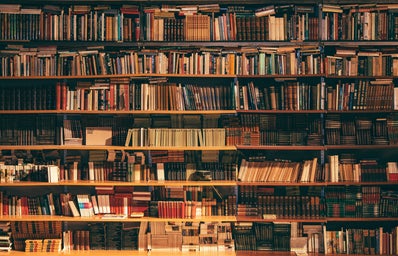The best piece of advice I’ve received as a writer is to read. Read, read, read. Read outside of my genre. Read old, read new. Read anything and everything. I love reading, so they might as well have told me to breathe. Why reading, though? The answer is simple: I can learn from their writing. For instance, Oscar Wilde integrates actions into dialogue in “The Picture of Dorian Gray” and Albert Camus conveys Meursault’s apathy in the narrator’s tone and diction in “The Stranger.”
This year I’ve decided to tackle the literary classics that I haven’t read yet. And here they are:
#1. “Pride and Prejudice”
Undoubtedly Jane Austen’s most famous novel, “Pride and Prejudice” is number one for many reasons. The first is that I am obsessed with the 2005 film adaptation with Keira Knightley and Matthew Macfayden. Their chemistry is out of this world and the storyline is phenomenal. The second reason is that I’m a sucker for romances, especially enemies-to-lovers romances. The biggest reason, though, is that I can’t be an English major without having read “Pride and Prejudice.” It’s practically criminal that I’ve gone this long without having read it.
#2. “Catcher in the Rye”
I’ve heard interesting things about this novel, mainly that John Lennon’s killer had it with him when he was caught. I have no idea what it’s even about, I only know that, apparently, the narrator is a liar and you never know what’s actually going on. From a writer’s perspective, I think there’s a lot for me to learn stylistically from “Catcher in the Rye.”
#3. “Frankenstein”
The first science fiction novel, ever. And Mary Shelley was in her twenties when she wrote it. She led a fascinating life; she was raised by a single father, she fell in love with a married man, and she traveled Europe with her son after her husband’s death while establishing her career as a writer. She apparently came up with the plot of “Frankenstein” during a “waking dream.” Just knowing her story and how “Frankenstein” came to be are reason enough to read it.
#4. “The Illustrated Man”
While not Ray Bradbury’s most popular novel (“Fahrenheit 451” is his most widely read), I want to read this one because the plot is fascinating: a man with tattoos that foreshadow the future. I think there’s a lot to gain from reading this novel as a writer. Also, Spencer Reid from “Criminal Minds” references it in an episode, and I’m in love with him, so on the list it goes.
#5. “Wuthering Heights”
In my first semester at CU, I took a Literary Analysis class, where one of my classmates loved this novel. She referenced it a lot during our class discussions, and she always had very interesting points. She had a literature-academia style that I was obsessed with, and when she recommended “Wuthering Heights” to me, I knew I had to read it.
#6. “Love in Times of Cholera”
Yet another romance because I can’t help myself. But, this is a Latin American love story. Gabriel García Márquez is easily one of the best writers in Latin American history, he was awarded the Nobel Prize for Literature in 1982, and he created the genre of magical realism. “Love in Times of Cholera”—which I will read in its original Spanish—is the love story between two people who met and fell in love in Paris but were separated for years. I just love García Márquez’s style of writing and how he brings his stories and characters to life so effortlessly.
#7. “The House of Spirits”
I have no idea what this novel is about. All I know is that Isabel Allende is a Chilean writer, and, as a Chilean writer myself, it is my duty to support her work. She wrote various novels, some of which have been translated into over 30 different languages. I was actually supposed to read “The House of Spirits” in school, but I transferred to another and I haven’t gotten around to reading it until now, that is.
#8. “1984”
The final book in my Pretentious Reading List. A literary classic that I was also supposed to read in school but I transferred so I never did. I read George Orwell’s “Animal Farm” a few years ago, and I really liked how he criticizes society in it: it starts lighthearted but takes shocking twists and turns that there is no way I could have predicted the ending. I also reference “Big Brother” way too much for someone who’s never even opened the book.
The reason I call this my Pretentious Reading List is that these are classics of literature, they’re timeless and I probably would not have chosen to read them otherwise. I have no idea what most of these books are actually about, which I think makes reading much more exciting. I’m diving in with zero expectations, so we’ll see what happens.




